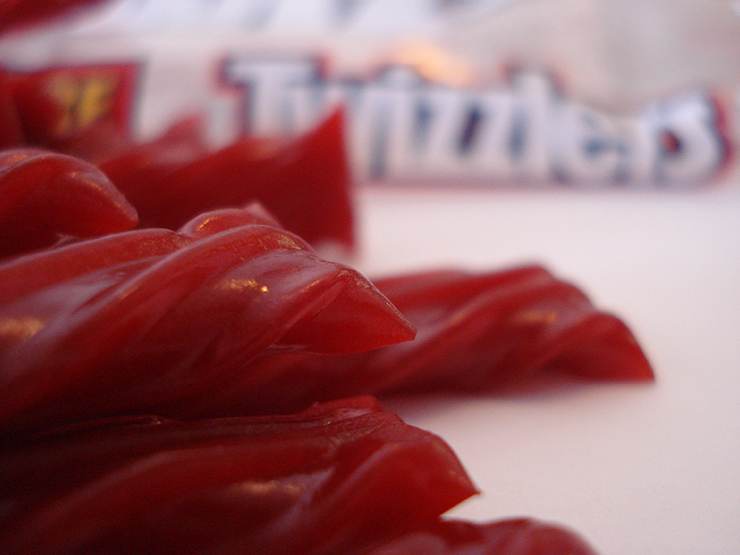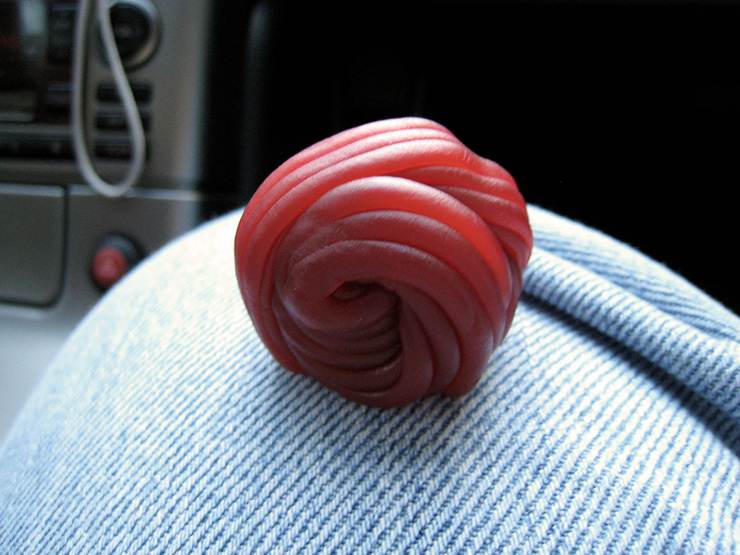Growing up, not one Halloween ended without me in a sugar coma. Without a doubt, Twizzlers was the culprit behind my plight. Even so, it remains to be a favorite treat of mine that I indulge in every once in a while.
Now, if you are a bird parent like me, you will share the feeling of having a child nagging to eat whatever you’re eating, except it’s a parrot that won’t stop screeching. That’s what happens whenever I open a pack of Twizzlers.
The other day I consulted my vet on this matter, and to my surprise, he was unsure. Hence, I took matters into my own hands and took my queries online.

Surprise! Surprise! The internet was divided on this matter for what seemed like decades. I found an article that allowed me to research this matter.
Brace yourselves! Because today I’m ending the debate of whether Twizzlers are safe for birds.
Is It Safe for Birds to Consume Twizzlers?
Now this is where the controversy stirs up. If you were to look for articles based on the safety of not just Twizzler as candy but licorice as well, that’s where the line becomes blurry.
I was reluctant to introduce Twizzlers, considering it’s more pure sugar and corn syrup than licorice nowadays.
To clarify, birds receive a balanced diet from natural foods they consume daily, meaning that the sugar in natural foods fulfills their standard requirements.

Increased sugar intake can lead to many health issues, such as indigestion, sugar coma, sugar fixation, obesity, and diarrhea.
Besides the high sugar intake, Twizzlers also run low on nutrients and are much more calorie-dense, which only acts as another risk factor for obesity.
Let’s Circle Back to the Star of the Show: Licorice!
What is this magical ingredient?
Licorice is a flowering plant, and we only consume the edible extracts of its roots.
Although it originates from all around the world, including Europe, Asia, and the Middle East; however, its use in confectionaries was popularized in the United Kingdom. The rest of the world cherishes licorice for its medicinal properties.
Fortunately, in recent times, licorice has been replaced with anise extract. I called it fortunate because of the jaw-dropping discoveries made about licorice in recent studies.
Research and increased reported cases of licorice poisoning have raised concerns about the safety of licorice consumption. It turns out that licorice interacts with certain medicines and alters their functioning.
It also contains a chemical compound that can increase blood pressure and cause an irregular heart rhythm (arrhythmia), which are severe health problems.
So, What Is This Mysterious Chemical Compound?
It’s none other than Glycyrrhizic Acid, which can only be found in the roots of Licorice plants. It’s responsible for the sweetness and nutritional benefits for which licorice consumption began in the first place.
But, like all things true, glycyrrhizic acid has a dark side.
Initially, it was consumed because of its ability to treat many diseases, such as respiratory disorders, hyperdipsia, epilepsy, fever, sexual debility, paralysis, stomach ulcers, rheumatism, skin diseases, hemorrhagic diseases, and jaundice.
However, studies have shown that too much glycyrrhizic acid can lead to a condition called Pseudohyperaldosteronism, which can cause a person to become overly sensitive to a hormone in the adrenal cortex.
Some of the symptoms of this condition include headaches, fatigue, high blood pressure, and even heart attacks.
Most articles I’ve come across online are oblivious to this lesser-known fact. Still, this small compound changes everything, doesn’t it?
Does Glycyrrhizic Acid Affect Birds As Well?
Unfortunately, no study or research can answer this question since these side effects are newly discovered. However, I would not keep licorice at bay because who would risk these symptoms?
Especially for small creatures like birds, they have a weaker digestive system than humans.
Hence, common sense dictates that it will be severely detrimental to a bird’s health to consume licorice along with Twizzlers since it’s also incredibly harmful to humans.
Now that we have jotted down the risk and benefits of Twizzlers keep reading for some delicious alternatives.
What Are Some Twizzler Alternatives You Can Introduce Your Bird To?
It’s a bummer when you can’t share your favorites with your feathered friends, but in this case, Twizzlers are bad for ourselves even.
What’s the next best thing to share? Let’s find out!
- Apples
- Pomegranates for their high iron content
- Squash
- Radishes
- Homemade nuts and seeds mix
- Pepper
- Beets
- Papaya
- Leafy Greens
Each of these alternatives is specified to ensure your birds receive the nutrition they would if licorice was safe for consumption and their own enjoyment. They have also catered to their natural diet, which, assumably, licorice is not.
Frequently Asked Questions
In this section, I will be reiterating what we’ve discussed to clarify any further queries you might have.
Can Birds Eat Licorice?
There is no definite answer to whether birds can consume licorice safely. However, licorice produces harmful side effects; hence, it is advisable to not introduce your birds to them.
Can Birds Eat Black Licorice Twizzlers?
I would strongly advise against adding any form of licorice or candy to your bird’s diet, as the side effects outweigh the taste and mere benefits.
Twizzlers, especially the black licorice ones, have higher glycyrrhizic acid content. Hence, it is far more harmful than regular ones.
Can Wild Birds Eat Twizzlers?
Twizzlers are dense with high fructose syrup, artificial flavorings, and licorice. All of these are detrimental to any bird’s health.
Birds shouldn’t consume foods not part of their natural diet; hence, wild birds cannot consume Twizzlers.
Final Remarks
While there is no absolute answer on whether the main ingredient in Twizzlers, licorice, is safe for bird consumption, it is clear that because of its high sugar content and the side effects of licorice found in humans.
If you ask me, I’m not adding candies to my bird’s diet, especially one that puts even humans at risk.
At the end of the day, the choice is yours. Don’t forget to follow up with your vet before adding new food to your bird’s diet.